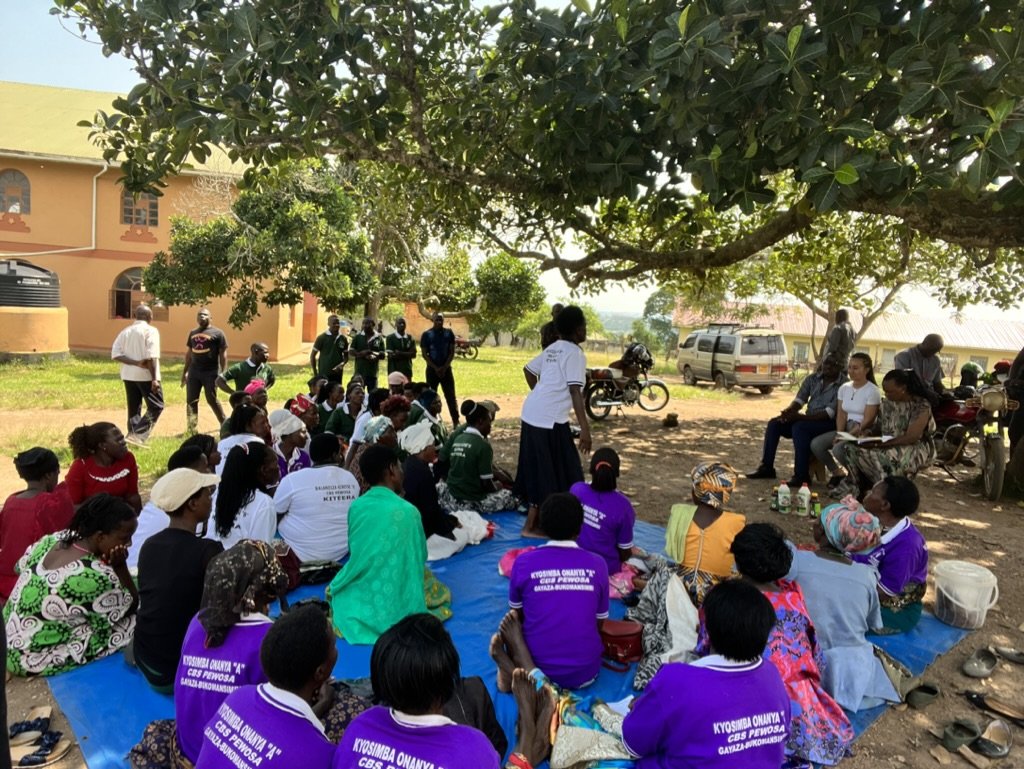
Mugga Legacy Village Baseline Assessment
Equipping the Community with Professional Skills
Kampala, Uganda
About The Organization:
Bavubuka Foundation, based in Kampala, Uganda, is dedicated to creating spaces and educational programs that nurture and empower a new generation of young leaders, in Uganda and all of Africa, who will use their voices to communicate powerful messages and effect positive change in their communities and the world. Each Bavubuka project incorporates reconciliation and peace-building activities by using transformative art, to cultivate personal empowerment within a united communal effort. Bavubuka provides opportunities to gain new skills, bring their own creations to life, and develop relationships that connect them to their immediate community, the larger Ugandan struggle, and a global peace-building movement.
Mugga Builders Legacy Village will be a Bavubuka Nation program bringing together passionate young leaders in the creative arts to create sustainable innovative community solutions for generational impact.
Mugga Village seeks to become a sustainable innovative community powered by the value of land as a resource. Mugga Village will run holistic programs centered around professional skilling & alternative education pathways, entrepreneurship, digital skills & web literacy, financial literacy, climate change adaptation, and cultural preservation.
Bavubuka Nation exists to bring together influential eclectic entities both from the continent and the diaspora, establishing a time urgent conversation, recognizing the power of unity and the importance of each stakeholder's engagement for our community’s development. Our vision continues to grow as we build new bridges with thriving leading communities powering the next generation.
Goal:
Establish Mugga Village (via the Bavubuka Foundation) as a sustainable, innovative community focused on professional skilling, alternative education pathways, entrepreneurship, digital skills & web literacy, financial literacy, and community empowerment
Project Approach:
With a team of skilled local researchers, Bavubuka Foundation, will conduct a baseline assessment study during a period of 7 days to integrate in the community, conduct interviews and dialogue sessions, gather baseline census and demographic information on Kirindi Village, and generate a road map for development, based upon community input. A human-centered design approach based on continuous community dialogues will be taken. Early engagement in Kirindi has identified several areas for focus in information gathering:
1. Entrepreneurship & Financial Literacy
2. Market Linkages and value chain integration
3. Safe learning spaces
4. Sustainability
As a result of this assessment, pilot projects for development will be formulated to begin taking action against the work prioritized and defined during the community engagements. Bavubuka researchers will only compile projects that will not continuously rely on outside funding, but will be financially viable within a reasonable period of time, and ultimately contained by and within the community.
Community Assets:
One acre of land is owned in Kirindi by Bavubuka Foundation in the central part of the village near the water
Buvubuka Founder, Stansilas Sajjabi, has been connected within the community for years, along with his mother, supporting women entrepreneurs and childhood education and are well-loved
The entire community has been engaged, from elders to political leaders to cross-sections of women, youth, and farmers. They have coordinated savings circles in anticipation of the development and have approved the engagement of the Mugga Legacy Village approach
Outcomes:
Collect demographics and census information for the village
Generate a strategic roadmap for development based on community input
Define pilot projects that will be financially viable within a reasonable period of time (and not reliant on outside funding)
Problems Being Addressed:
A booming youth population: 42% of the population in Uganda is under the age of 14. As a result, there are as many young people needing care as there are adults. And there are many more people of working age than there are job opportunities.
The lack of positive engagement for unemployed youth causes barriers to upward social mobility.
Employable upskilling opportunities are limited for community members.
In Kirindi village, there are many needs for development. It’s not clear where building should begin from a sustainable systems perspective.
There is a lack of community meeting space to identify solutions, work together on problems, and promote social connections and cohesion.
Sustainable Development Goals:
SDG 11: Sustainable Cities and Communities
SDG 17: Partnerships
Access Needed:
$25,000 initial investment for:
Purchase of land in Kirindi Village for community gathering space
Skilled local researchers to conduct a baseline assessment
Collection of census and demographic information for Kirindi Village over a 7-day period
Information gathering focusing on:
Entrepreneurship and financial literacy
Market linkages and value chain integration
Safe learning spaces
Sustainability of community-driven efforts
Mugga Updates:
The Mugga Legacy Village Project is creating a shared strategic roadmap for community development and defining financially viable pilot projects in such areas as entrepreneurship and value chain integration, which can generate pathways to employment, especially for youth. The project also purchased land for a shared community gathering space.




